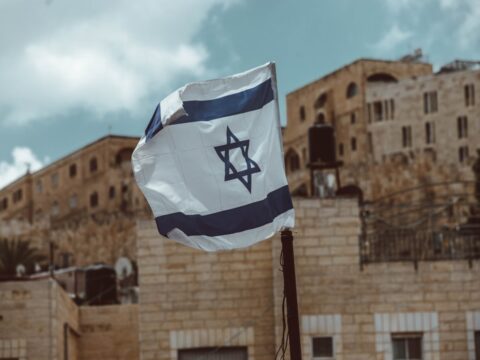Israel’s Foreign Minister Gideon Sa’ar delivered a blunt message: Turkey will have no place in the multinational peacekeeping force slated for Gaza. Speaking from Budapest, where he was attending a European security forum, Sa’ar didn’t mince words. “We will not allow Turkish troops on the ground,” he declared, his tone laced with the weight of two years of bitter conflict. The decision, he implied, stems from Ankara’s longstanding ties to Hamas – ties that Israeli officials have long viewed as a potential “Trojan Horse,” slipping militants back into a fragile post-ceasefire landscape under the guise of stability.
The announcement comes at a pivotal moment for Gaza, where a U.S.-brokered ceasefire, hammered out in the final days of the Trump administration’s first term, is barely holding after 24 months of devastating war. The conflict, ignited by Hamas’s October 7, 2023, assault on Israel that killed over 1,200 people and took more than 250 hostages, has claimed tens of thousands of Palestinian lives and reduced much of the enclave to rubble. Now, with aid trickling in and displaced families tentatively returning north, the international community is scrambling to prevent a security vacuum that could reignite the flames.
At the heart of the proposed force is a coalition of nations – potentially including Jordan, the United Arab Emirates, and Indonesia – tasked with disarming Hamas fighters, securing borders, and training a new Palestinian police contingent. U.S. Vice President JD Vance and Secretary of State Marco Rubio have been vocal cheerleaders, touting the plan during recent visits to the region. Rubio, speaking from a newly inaugurated coordination center in southern Israel last week, emphasized that the force’s makeup would hinge on one key condition: “Israel has to be comfortable with it.” Vance echoed the sentiment, praising Turkey’s mediation role in the ceasefire talks but deferring to Jerusalem on troop deployments. “We’re not forcing anything on our Israeli friends,” he said, a diplomatic nod to the veto power effectively handed to Prime Minister Benjamin Netanyahu.
For Israel, the calculus is brutally simple. Turkey, once a quiet ally with thriving trade ties, has morphed into a fierce critic under President Recep Tayyip Erdogan. Since the war’s outset, Erdogan has unleashed a torrent of rhetoric, branding Netanyahu a “genocidal” figure akin to Adolf Hitler and accusing Israel of ethnic cleansing – charges Jerusalem vehemently denies. Hamas leaders, meanwhile, have found safe harbor in Istanbul, where they’ve reportedly raised funds, recruited, and plotted attacks, according to Israeli intelligence. Ankara dismisses these claims as smears, but the optics are damning for Israeli hawks. “Letting Turkish forces in would be like inviting the fox to guard the henhouse,” one senior Israeli official told reporters off the record, invoking the ancient Greek myth of the Trojan Horse to underscore fears of infiltration.
Erdogan, undeterred, has positioned Turkey as Gaza’s steadfast supporter. Last week, he pledged “all kinds of support” for reconstruction, with Defense Ministry officials quietly preparing logistics for humanitarian or security roles. Yet, even as Turkish disaster teams languish near the Egyptian border, denied entry by Israeli authorities, the rejection stings as a personal rebuke. It highlights a broader rift: While the U.S. credits Turkey with pressuring Hamas to the negotiating table, Israel sees Erdogan’s Hamas sympathies as a direct threat to any postwar order.
The fallout ripples beyond bilateral bad blood. Potential partners like Jordan’s King Abdullah II have voiced qualms about the force’s mandate, insisting it prioritize “peacekeeping” over “peace enforcement” to avoid entanglement in endless skirmishes. Arab states, wary of alienating their publics, push for a U.N. Security Council blessing, though Washington prefers a looser, U.S.-led framework. And Hamas? The group, still clinging to its arsenal, demands an end to Israeli “occupation” before any disarmament – a nonstarter for Netanyahu, who envisions a demilitarized Gaza under ironclad international oversight, sans Palestinian Authority meddling.
As the sun sets over the bullet-scarred streets of Deir al-Balah, where mass graves for unidentified Palestinians serve as grim testaments to the toll, this veto underscores the ceasefire’s fragility. For Gazans, eking out survival amid aid delays and closed crossings, the wrangling feels like another layer of indifference. “We need boots on the ground that build, not bombs that bury,” said one weary aid worker, speaking on condition of anonymity. Yet with Israel’s red line drawn in the sand, the path to those boots just got narrower – and the specter of renewed chaos, a little closer.













